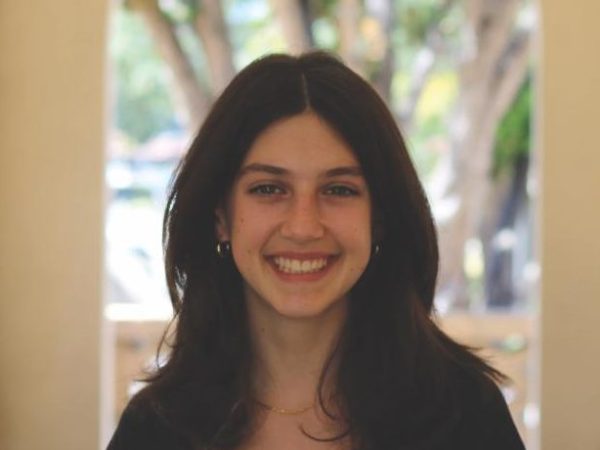People are always so surprised when they find out I’m Venezuelan. The conversation goes from “Wait, you speak Spanish?” to “You don’t look Venezuelan.”
Seemingly insignificant comments like these make me wonder how to escape the categorical box I am continuously placed in. When people invalidate my Venezuelan identity by commenting on my physical appearance, I feel as though I am not Latina enough, and that my legitimate culture is denied in order to protect others’ indifference.
My grandparents immigrated from Europe to Latin America in the 1940s. My dad was born and raised in Caracas, Venezuela, and he moved to the United States when he was 25 years old. While my dad may not have the ancestral Venezuelan phenotype, he is unquestionably Venezuelan.
As a result, I don’t have the stereotypical Venezuelan appearance. Yet, like my dad, I still identify as Venezuelan and Latina because I was raised within that culture.
And I’m not the only one. Immigrants in America are constantly told they don’t belong because of their accent, looks and history. Their children, born in America, learn to adopt American customs to veil their familial ethnicity.
Some of us try to hide who we are by changing our appearance, and others of us try to change our appearance to show people that we belong to another culture. By behaving in this way, we are suffocating our self-expression and our culture, and we are hindering societal progress.
People pledge their “wokeness” so they don’t become a victim of cancel culture, yet they still cannot live by the most important and basic concept of all: we are not defined by how we look.
Latinas aren’t just the cookie-cutter version of what Hollywood portrays us to be. Our looks don’t necessarily align with exotic, brown, spicy depictions that are widespread across the media.
I am white and Latina. I have white privilege, which means I have benefits due to unconscious bias, like being able to display my culture of being Venezuelan without any consequences. This also means that because I am white, people would never know or even assume that I am Latina.
But Latina is not a color, it’s a culture.
We live in a modern age, where society is much more accepting of gender fluidity and sexuality, however we still place humans into categories.
These labels were created centuries ago from unfounded assumptions and stereotypes to enforce discrimination and marginalize communities. As the root of societal indifference, labels can invalidate our identities and enhance the partition of ethnic communities. It’s time we give up the subtle segregation society coerces us into suffering.
Currently, there are no definitive labels that can describe anyone because each individual is the physical embodiment of the many people with various ethnicities that make up our genealogical tree.
Even the professionals can’t agree on a single definition of race and ethnicity, so how can we so easily place others into a category? Do we know, just by looking at others, where their family is from? With what culture they identify with?
But if there aren’t labels, how do we tell people who we are? We need these categories to describe our identities. However, we as a society need to adjust how we assign them, and redefine the labels by placing an equal emphasis on geography and culture. Growing up with Latin American culture should be equally important as having the Latina phenotype.
Like you, I am more complex than a checkbox could ever be, so don’t try to make me choose between caucasian and Latina. Don’t tell me I don’t look Latina, even if I am white.
Isn’t it time we start choosing our identities instead of having them chosen for us? Why can’t we just be who we are, without having to validate our identities with random labels that don’t apply to us? In a nation that claims to be the land of the free, how liberated are we if we are obligated to chain ourselves and others down to inaccurate identities?
What if I told you that I was Jewish as well? What category would you place me in then? Can I be both Jewish and Latina, because neither of them are mutually exclusive? Or will you just place me into another category based on designated characteristics, and box my hopes up that someday, people will leave the labels out of society?

